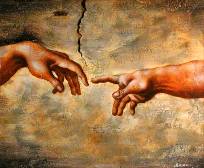 The human heart is on a quest for happiness. Every person yearns for happiness like the desert yearns for rain. You have a desire for happiness, I have a desire for happiness. This desire is universal, common to every member of the human family. We simply desire to be happy, and we act from this desire.
The human heart is on a quest for happiness. Every person yearns for happiness like the desert yearns for rain. You have a desire for happiness, I have a desire for happiness. This desire is universal, common to every member of the human family. We simply desire to be happy, and we act from this desire.
We often do things that we think will make us happy, only to discover that they end up making us miserable. This is often because we confuse pleasure with happiness. And sometimes long-term misery comes disguised as short-term pleasure. Under the influence of philosophies such as Individualism, Hedonism, and Minimalism, we often seek the happiness we desire through pleasure, possessions, power, and the path of least resistance. Each of these may offer moments of happiness, but they end too soon, having lasted ever so briefly, and our quest for a lasting happiness continues. These moments of happiness are of course real, but only as real as a shadow. The shadow of a person is real, but it is nothing compared to the actual person. So many of us spend a large portion of our lives chasing shadows.
The modern search for happiness is governed by Individualism, Hedonism, Minimalism and their fruits: greed, lust, laziness, gluttony, selfishness, exploitation, and deception. And yet, as these philosophies become more and more the focus of modern lifestyles, people seem to be filled with a greater discontent and unhappiness with every passing day.
Are we prepared to consider that these philosophies cannot deliver what they promise? Is it possible that there is something lacking in these philosophies that makes it impossible for the human person to find happiness through them?
I believe God wants us to be happy. I believe God gave us the yearning for happiness that constantly preoccupies our human hearts. It seems God has placed this yearning within each human heart as a spiritual navigational instrument designed to lead us to our destiny. God himself is the author of our yearning for happiness.
As a Father who takes a sincere and active interest in the lives of his children, God sent his only Son to respond to humanity’s yearning for happiness, and to teach us how to satisfy that yearning. God sent His Son into the world to reconcile us with himself, certainly, but he also sent Jesus to show us how to live.
The philosophy of Christ is the ultimate philosophy of human happiness. It isn’t just a way of life; it is the way of life. At the same time, the philosophy of Christ is one of self-donation. This is the great paradox of God’s teaching. In our misguided adventures, we may catch glimpses of happiness living outside of the philosophy of Christ. You may even taste happiness for a moment living a life contrary to the philosophy of Christ, but these are stolen moments. They may seem real, but they are just shadows of something infinitely greater.
This article is adapted with permission from Matthew Kelly’s book, Rediscovering Catholicism. Get your FREE copy of Rediscovering Catholicism at www.DynamicCatholic.com.













